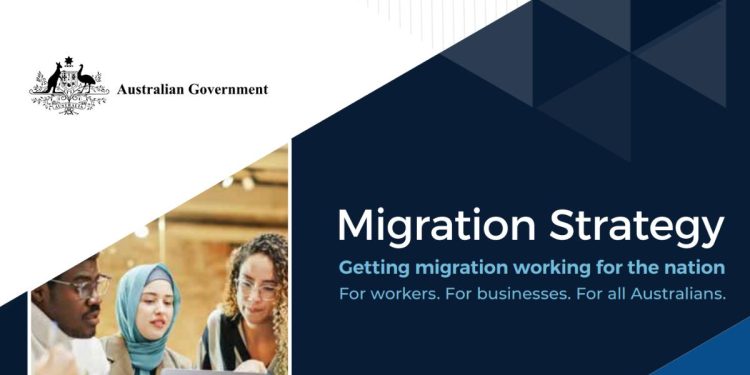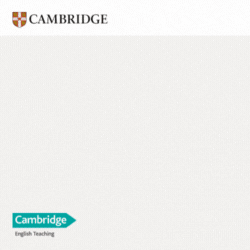The Koala has spent the last 24 hours listening intently as the international education sector responds to the release of the Migration review.
The Koala has garnered reactions from major lobby groups, these are as follows:
Reactions
Brett Blacker: CEO English Australia
“English Australia welcomes the positioning of priority processing by the department in recognition that good quality providers will receive high levels of service. This will support our members.
Changes to English language proficiency requirements were anticipated based on consultations with the government, albeit the impacts on the vocational education sector will likely be significant, as we’ve highlighted throughout the process.
Questions remain regarding the construction and implementation of the Genuine student test along with any new reporting requirements.”
Phil Honeywood, CEO of the International Education Association of Australia
“The headline migration intake figure, which many media outlets are now referring to, is not valid. It includes a large number of non-genuine students who came into Australia when our borders suddenly reopened. Over 100,000 of these are now on the so-called Covid Recovery full work rights visa and no longer studying.
We should be fairly confident that once this, and other temporary student visa cohorts, return to their home countries then the headline numbers will significantly reduce and become more sustainable. In all of this, the theme is now quality students over quantity. It is ironic, however, that just when we have record low unemployment rates, and are competing in a global race for skills, Australia chooses to send out mixed messages about who we want to come to our country. Of course we are not alone in doing this.
Other nations, most recently the UK, are proceeding with similar policy measures. Going forward, it will therefore be crucial that our Government gets out and effectively promotes its proposed new Graduate Skills visa and does not overly complicate the new Genuine Student Test.”
Robert Parsonson, Executive Officer International Student Education Agents Association (ISEAA)
“ISEAA supports the direction of the migration review to put a focus on genuine students and to create clearer pathways to migration for eligible students. There are few details around the 8 points of the review and until we have clarity on details, we will not see the consequences. The crackdown on international students has already started using the self-apparent economic reasoning that Australia has higher weekly wages than many countries that send students.
ISEAA would like a balanced and transparent approach to slowing down markets – keep in contact with agents and providers to give a direction on DHA’s intentions.”
Universities Australia
“We support the government’s focus on streamlining the system and adding flexibility to ensure it is fit for purpose and can meet Australia’s skills and economic needs in the coming decades. Importantly, the strategy acknowledges how vital international education is to the economy and Australia’s prosperity. It makes us tens of billions of dollars each year, supports tens of thousands of jobs and helps pay for the essential services all Australians rely on.
We welcome further measures to preserve the integrity and strength of the education system while protecting students from unscrupulous operators seeking to exploit them for personal gain.
We also applaud the government’s steps to simplify graduate visas to improve the applicant experience and give both graduates and employers more confidence in their ongoing work rights.
Universities Australia has called for a genuine student test to replace the genuine temporary entrant requirement and we are pleased government has accepted this recommendation. This will ensure we are getting the right people with genuine ambitions to attend university in Australia.
The creation of new visa streams to attract researchers to our universities and keep more international graduates in Australia is also a good thing.
The skilled people who come to work and study at our world-class institutions make an enormous economic and social contribution. We must continue to attract them for mutual benefit.
Any changes, now or in the future, that restrict the movement of genuine students to our shores need to be weighed carefully against the significant benefits they bring, during and after their studies.
Universities Australia has engaged deeply with government on the development of the migration strategy and will continue to do so through its implementation as we all work toward a better migration system that underpins a flourishing multicultural nation.”
Troy Williams, CEO Independent Tertiary Education Council Australia (ITECA)
ITECA shares the Australian Government’s commitment to ensuring that overseas students can study in Australia with complete confidence in the quality of the tertiary education that they will access. Therefore, it broadly welcomes the direction of the reforms set out in the Strategy.
The approach to the international skills training sector as set out in the new Migration Strategy is highly problematic, based on broad and often inaccurate generalisations about quality, and data from a broken visa processing system. It ignores the high-quality skills training outcomes that the majority of international students in Australia receive, which is supported by demonstrative data.
In looking at the Migration Strategy in its entirety, ITECA has concerns about how the sweeping nature of the reforms set out in the Strategy will play out when detailed policy is determined and implemented.
Nishi Borra, President Association of Australian Education Representatives in India (AAERI)
While Australia will remain one of the favourite destinations for Indian students. Most students from India already undergo a high level of scrutiny and checks done by the universities before accepting them. This will continue
While I am not able to comment on the new Genuine Student Test (GST) as the full details are not yet available. But I think it is similar to the GTE and is finetuned. We hope this new GST is consistent among all institutes, right now the GTE checks adopted by institutes are all at differ and agents/ students get confused.
On the other hand its good that low risk providers will be prioritised in faster visa processing. Unscrupulous providers will be identified and acted upon plus the restrictions on visa hopping is welcomed.
In the past one year the extra post study work was the incentive and attractive to many students from India. A list of courses eligible for this extra post study work was also provided. Indian students were told that students studying certain programs or students having certain skills will be given extra post study work. This PSW was talked about by Indian agents and Australian institutes. Many students enrolled in such programs and it’s not clear if the students who graduate next intake or after will be considered for the extra PSW. It’s unfair if such students don’t get the extended PSW.
The increase of the English levels by 0.5 bands is ok as most universities only accept scores which are higher than the Home Affairs requirement. Indian students will not have an issue here.
I also want to mention the fact that the middle class in India is growing and has more disposable income now. The Indian middle class is more inclined to study abroad and India has genuine students.
Lastly at AAERI, we are aware that every intake has new challenges and this needs a coordinated approach by all stakeholders including AAERI, Australian institutes and various government departments. This week we are in the process of organising a briefing by authorities to all our members on the changes.
Points to Ponder
As well as seeking out reactions, the Koala has been quietly paying attention to opinions in the online world, having conversations, and formulating its own opinions.
The following are a series of “issues” that the Koala believes have merit:
Targeting of Shonks and Unscrupulous Behaviour
The Government should be commended for targeting shonks and more broadly, unscrupulous behaviour. It is this behaviour and these people that lie at the centre of the review, which seeks to bolster quality and integrity.
How many shonks? Remember the Minister for Skills and Training, The Hon Brendan O’Connor response to the same question? “Probably more than a dozen, but under 100” (TKN 3/10/23).
Age of Post-Study Work Rights Change
Ly Tran, Professor of International Education at Deakin University, makes the point that the maximum eligible age for a temporary graduate visa will be reduced from 50 to 35. This is unreasonable and will make many (if not the majority of) international PhD graduates ineligible for temporary graduate visas. Irony as these graduates hold the highest qualifications and great potential to contribute to Australia while the intended goal of recent post-study work policy changes is to retain talent and address skills shortages. (Page 68 of the Strategy).
The Koala supports Professor Tran’s assertion here. As pointed out by Julian Hill at the Sympled conference last week ‘The most valuable skilled migrant to Australia is one who was educated in their home country for primary and secondary and maybe an undergrad degree comes here and does a master’s and then transitions into a skill shortage area and pays tax for 40 years’.
Clearly, a line has been drawn in the sand, unfortunately.
Skilled Migration
The Koala makes the point that the broader system isn’t to blame for migration backlogs. The issue has always been graduates of skilled areas haven’t gone into work in the area that is a) on the skilled list and b) they graduated from. Until this nexus is fixed, skilled migration will remain a wait-and-see event for students.
There has been much public discourse over students moving from study to work and back to study and work numerous times over. Understandably, the government wants this unhinged pattern to end but… The more the Government tweaks migration policy, in layman’s terms, turns on and off the tap by pulling different leavers, the more behaviour of individuals will seek to stay in the country, waiting for a policy shift to favour them.
Grandfathering
Nishi Borra of AAERI and Ravi Lochan Singh of Global Reach each make a very astute observation about Post Study Work Rights. Students chose Australia based on a proposition that was on offer at the time. In this case, post-study work rights of a certain duration with bonuses for regional locations. Will these be shut down, or will these cohorts be grandfathered through?
Ravi Lochan Singh saying “Only in July 2023, it attracted students with additional 2 years of PSW in certain courses. Yes, a list of courses was provided. Now, when the student has enrolled and is studying, it is reversed. It is not clear if these students will be given that extra two years when they graduate in 2025. Probably not. Is this fair?”
The Koala agrees and believes honouring the offer is important.
Genuine Student Test and DHA Behaviour
The introduction of the Genuine Student Test is a point many of the lobby groups refer to.
The Koala believes a move away from the Genuine Temporary Entrant Test is a positive move. It does absolutely see irony in the fact the government has been open about decreasing migration levels but turfing the GTE, one could imagine these go hand in hand.
Little detail has been made public on the new Genuine Student Test and the Koala believes this will a key policy driver of behaviour. Its content will shape a large amount of what to expect from visa officers’ assessment in the future and will be the catalyst for program-level behaviour.
Watch this space closely.
Mentions of COVID Event cohort
The government says in its report “Post-COVID, recent growth in international education has been partly driven by nongenuine students and unscrupulous education providers subverting aspects of the current regulatory and compliance framework, and pandemic-era visa concessions, such as unrestricted working hours for international students.” (Page 61).
The Koala ponders. If this was such a big deal, why the delay in closing the COVID visa concessions?
The timeline is as follows:
1 November 2021 – Australian Borders commenced a staged reopening
23 May 2022 – The Government was sworn in
1 October 2022 – Crisis payment for national Health Emergency ended
2 September 2023 – The government closed the COVID Event 408 visa to new applicants
1 February 2024 – The COVID-19 Pandemic event visa will close to all applications
This visa remained open to new applicants 11 months after COVID-19 payments stopped.

















